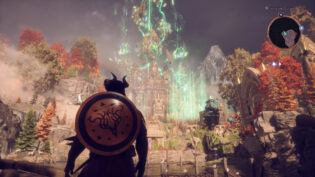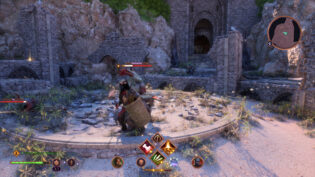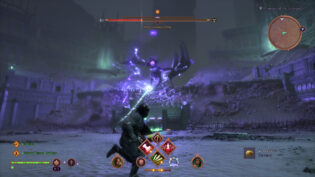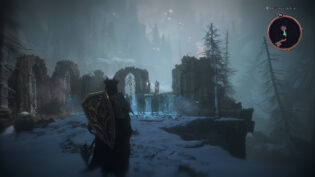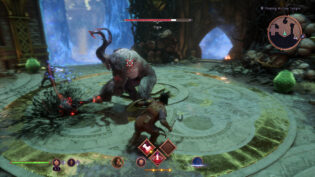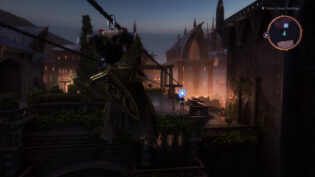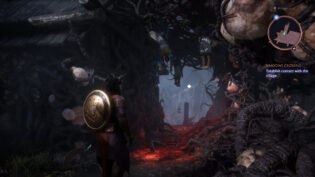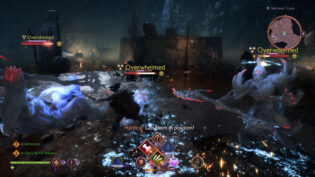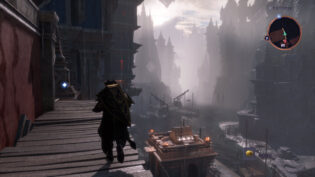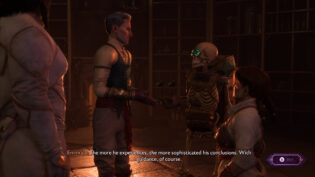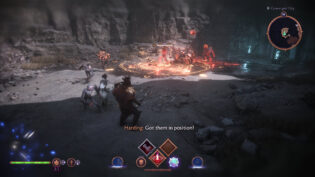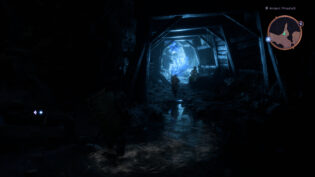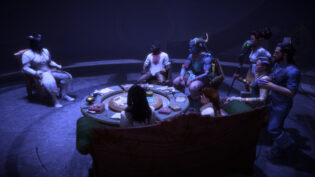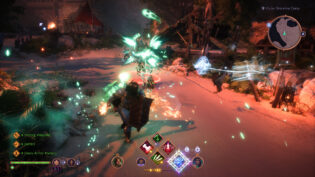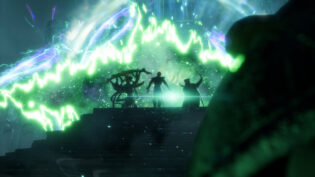As someone, who got into computer roleplaying games due to the first two Baldur’s Gate titles decades ago, my takes on Dragon Age were often considered at least somewhat controversial. While I liked Origins, I never cared about it that much and found it quite boring. As everyone pointed at the copy and paste dungeons of Dragon Age II, I called it the best story-driven RPG BioWare has created, and stand by those words even today. And… Hmm, I suppose saying that Inquisition isn’t worth your time was not a very controversial opinion. But nonetheless, I admired Dragon Age world and even Inquisition, for all of the dozens of hours of boring crap, felt like it still belonged to the same world first shown in Origins. The Veilguard offers only tiny glimpses of that and most of the time feels like a Saturday morning cartoon adaptation of the story. Yet… it can be quite alright to play anyway.
While Dragon Age started pretending to be a return to realtime with pause tactical combat of the original Baldur’s Gate games, in reality it never worked well and felt far closer to the more primitive Neverwinter Nights gameplay. Starting with Dragon Age II, the series started slowly moving away from pretending to be something its not, in how its combat worked, into an almost pure hack and slash action RPG and The Veilguard is the result of that process. And as a result, this game feels like an attempt to marry the Dragon Age setting with the combat ideas of Mass Effect 2 and 3, including the mission structure of those latter games.
In terms of combat that means a three person party that plays like a directly controlled hack and slash game (so I’d strongly advise using the controller for it as kb+mouse are just unpleasant to use) with all of the typical elements like dodging, blocking and countering and quick access to special skills and spells. The screen that pauses the game and lets you select targets for yourself and your teammates is very reminiscent of Mass Effect and the concepts of combining skills or spells now works almost exactly like it did in later Mass Effect entries. Enemies take forever to die, but not as long as in Inquisition and even less if you’re constantly using correct skills and combinations.
As for exploration, there are locations you get to visit at almost any point, yet parts of them are arbitrarily locked until a later quest unlocks them. And there are locations that work as linear missions with no way to revisit them. In general, locations are much smaller than the deserts of boredom of Inquisition, but are far less memorable and “homey” as they did in DA II. It’s less of a balance between the two, and more of a compromise that never feels great, but doesn’t feel offensive either. Plus, party members you get also provide additional paths in the locations that are tied to their unique exploration skill, which is a cute metroidvania-ish idea.
And as for the storytelling, it is a typical BioWare fare, only this time extremely clearly using Mass Effect 2 as a blueprint, just without most of the charm of that game. You get new party members, help different factions, do quests and stuff, get romance options, become more friendly with people, solve their problems and then launch a suicide mission. It’s not bad, and ME2 is a good template to use in concept, the issue is that it doesn’t really make a ton of sense. Nor does it work when all characters are clearly written by different people who seemingly wrote them for different games.
Which is where that Saturday morning cartoon feeling starts to creep in. While some characters feel like they fit the world of DA you already know, some feel like they are straight from a 40s pulpy magazine. Or a modern teenager. Or a person with a brain the size of a bean. You may be experiencing a story beat that feels like it could be in DA II or the better parts of Inquisition and then suddenly BAM you’re in the world of Divinity or Life is Strange. Not a clever recontextualization of ideas and concepts of how that type of character would work within an established setting. Just BAM a character that doesn’t fit, materialized in the world of Thedas. With the saddest thing being that even those characters get genuinely wonderfully written scenes and emotional story moments. Which you can’t engage with as much as you could if the characters themselves didn’t feel like a walking parody.
The gameplay, for how I appreciate BioWare’s attempt to make this a fun action RPG, is incredibly bland too. Not that I expected it to be amazing – it’s extremely common for modern hack and slash action RPGs to make combat slow or overly extended or boring instead of tense and challenging (and refusing to make it just fun in fear that it will be viewed as “easy”). But there is promise – the attempts to learn from why Mass Effect became a fun shooter are clearly visible and they do make the gameplay more fun. It’s just that having enemies that constantly attack, or have a constant explosion happening around them, or constantly block, or constantly interrupt the combo, or just have way too much health, or have too much health and several phases… What I’m saying is that – the gameplay that’s here is alright for 12 hours of a hack and slash game, yet this game is 50 hours so it gets very stale. But at least they’re doing something good instead of whatever that horrible crap in Inquisition was.
Still – nothing in The Veilguard feels cohesive in the end. No central idea that is so powerful it holds everything together. For how many problems Mass Effect: Andromeda had, it at least came from the genuinely good idea of trying to focus on one of the big pillars of the original game – the space exploration. And exploring and learning about new world in that game felt great and as a direct improvement over the same enjoyable activity in the first game. Dragon Age: The Veilguard has nothing to grab onto, nothing to really connect it with either other entries or even be a defining element of its own. Oh right, speaking of other entries – there is no save import this time at all, so the game just tries to dance around all of the choices you might’ve made in the previous games, very awkwardly. They really should just stick to Dragon Age II-style approach of mostly independent stories within this setting, preferably without another world ending threat. But no, this game’s secret post-ending has a sequel hook that is so pathetically bad and undermining all of the stories told in the game so far, that I doubt any future Dragon Age games will go back to the quality storytelling of DA II…
I wasn’t miserable most of my time playing Dragon Age: The Veilguard, which is quite an improvement over Inquisition. That said, the highs of the previous game, as rare as they were, were really high. Whereas The Veilguard does not get anything even remotely as good as that. Doesn’t get as bad either, though. And the gameplay can be alright. For fans of Dragon Age, especially those who like quality storytelling and admired the stronger aspects of writing in the series up until now, The Veilguard will probably be a slap in the face. For a less discerning audience this might be an enjoyable experience for the most part. As for me, I’d still say that the only game in the Dragon Age series everyone should play is II. But I guess I didn’t mind this one that much.


